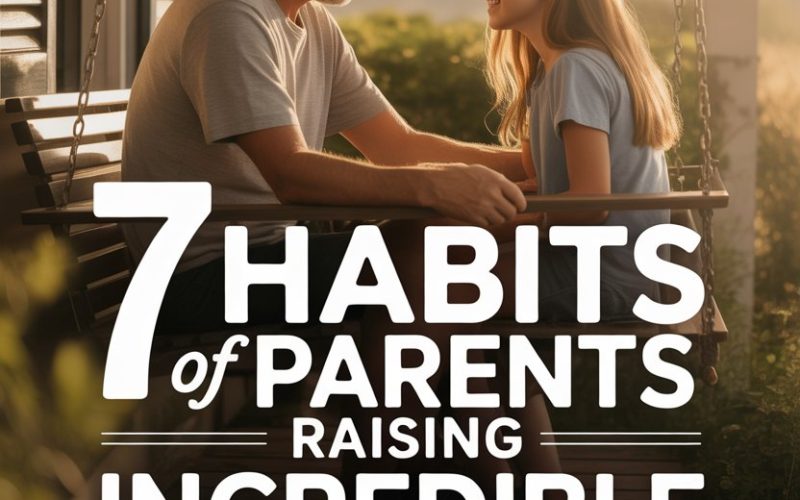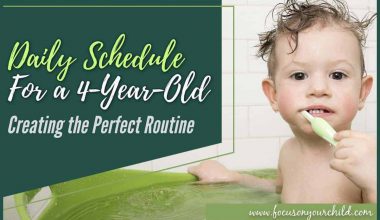Let’s be honest: Raising children who will one day become thoughtful, well-adjusted grown-ups often feels like trying to assemble IKEA furniture without the instructions—or the right Allen key.
Busy parents everywhere are searching for the “secret sauce”—something more nourishing than fish fingers, less sticky than Play-Doh, and unlikely to leave glitter in every crevice of your home.
Turns out, there are habits that families with thriving adult offspring tend to share.
They don’t require a PhD in child psychology. Just a healthy dollop of intention, consistency, and the occasional parental bribe (let’s not pretend those don’t happen).
1. Open the Doors to Honest Communication
Families with strong, independent adults weren’t built on secrets and “because I said so.” They had parents who valued honest conversations, even when the topics made everyone squirm a bit.
This doesn’t mean delivering a TED Talk every time your child asks where babies come from. It’s about making space for real conversations—feelings, disappointments, apologies—without rolling eyes or lectures.
When you react with calm, curiosity, and a willingness to listen (yes, even after a very long day), you show your child that their voice matters.
Research from Harvard’s Center on the Developing Child highlights how responsive, back-and-forth communication (sometimes called serve and return) builds both brain architecture and emotional resilience.
Turns out, all those “just talk to me about it” moments are wiring your child’s brain for life.
2. Encourage Independence Without the Helicopter Rotors
Picture the parent who hovers at every playground, wipes every smudge, and leaps in to fix every social squabble. Now, picture their child at 25 trying to book a dentist appointment.
Children need opportunities to try, fail, and get back up again (sometimes with mud on their knees and pride in tatters).
Maybe that means letting your seven-year-old tie their own laces, even if you’re running late. Or allowing your teen to argue their case for a later curfew, then sticking to your boundaries—but letting them voice their reasons.
Parenting experts frequently remind us that independence isn’t about leaving kids to fend for themselves. It’s about giving them appropriate challenges, then stepping back and watching for those little “aha” moments.
This is scaffolding, not a free-fall.
3. Model Humility and the Fine Art of Apologizing
Amazing adults aren’t born knowing how to admit mistakes. They watched their parents do it—awkward stumbling, red faces, and all.
Drop the myth of the infallible parent. When you snap at your child because your boss sent a particularly unhelpful email, own it.
A simple, “I’m sorry I lost my temper. That wasn’t fair to you,” teaches more than a thousand lectures about respect or integrity ever could.
Children absorb what they see. When apologies happen at home—genuine, not forced—kids learn how to repair relationships out in the world.
That’s a skill that will serve them far beyond the walls of your kitchen.
4. Foster a Growth Mindset Instead of a Report Card Obsession
We all know someone whose fridge is covered in certificates and gold stars. There’s nothing wrong with celebrating effort, but the best parents cheer for the process, not just the shiny outcome.
Stanford psychologist Carol Dweck’s research on growth mindset shows that children praised for effort, strategy, and grit become adults who tackle challenges with resilience.
Instead of, “You’re so smart!” try, “I saw how hard you worked on that project.”
The message? Failure isn’t a catastrophe—it’s a stepping stone.
Encourage risk-taking, creative problem-solving, and the willingness to try again. You’re raising someone who can handle life’s curveballs, whether or not they ever ace algebra.
5. Prioritise Laughter, Play, and Down Time
Ask anyone raising kids, and they’ll tell you: The days are long, but the years fly by in a blur of mismatched socks and missing water bottles.
Somewhere between violin lessons and spelling tests, something precious slips away—play.
The parents whose children become well-rounded, emotionally healthy adults know how to let their hair down. They schedule unstructured family time.
They invent silly in-jokes and lose at board games (gracefully, most of the time). They allow for lazy Sunday mornings and the occasional screen-time splurge when everyone needs a break.
Laughter isn’t just a luxury. A study in the journal Pediatrics found that play boosts emotional regulation, social skills, and even academic learning.
Besides, who doesn’t want to be remembered as the parent who once built a blanket fort so epic the dog moved in?
6. Teach Empathy Through Everyday Acts
Empathy isn’t taught in a single heartwarming conversation after a Disney film. It’s woven into daily life—how you treat your partner, the way you speak to the barista, your willingness to listen when your child’s friend is having a hard day.
Years of research from the Greater Good Science Center confirm that children who witness and practise kindness at home are more likely to become caring, altruistic adults.
That means letting your child see you drop off soup for a sick neighbour, discuss world events with compassion, or reflect on your own privilege.
Invite your child to help decide which old toys to donate, or encourage them to notice when a peer looks left out. Empathy is a habit, not a one-off lesson.
7. Let Go—Just Enough—for Them to Fly
The finish line of parenting isn’t actually a line at all. More like a wobbly, ever-shifting finish tape that keeps moving as your child grows older. The hardest habit of all: gradually letting go.
This doesn’t mean disappearing or becoming the mysterious parent who only sends cryptic texts (although, tempting as that may be during the teen years…). It means trusting your child to make their own decisions, even ones you might not agree with.
Let them experience the natural consequences of their choices, while still being there as a steadfast safety net.
The late, great psychologist Dr. Wendy Mogel wrote that children are “tribal apprentices,” and parents are the elders, not the chieftains.
Step back just enough to allow mistakes. Be nearby—just not always centre-stage.
Raising Adults Who Give You Hope for the Future
Parenting is never a flawless process. There will be forgotten lunchboxes, wild mood swings (yours and theirs), and evenings spent questioning whether you’re getting any of it right.
The secret? No single habit or hack guarantees a future of Nobel Prizes and hand-written thank-you notes.
But by weaving these habits into daily family life, you’re creating the kind of loving, resilient foundation that incredible adults grow from.
Who knows? One day, your grown child might even thank you—in their own adult-y way. Or, at the very least, they’ll know how to apologise after finishing the last of your chocolate biscuits.
That, my friend, is the dream.




